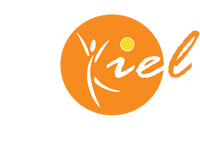Organization of training workshops and information sessions with some priority to train the trainers (including teachers and university Professors), as well as those who can inform (such as journalists) and motivate (e.g. religious leaders) others, and facilitation of internships. The effectiveness and successes of training workshops have been demonstrated inter alia through the regional and sub-regional protected areas workshops that were organized in collaboration with international non-governmental organizations in the context of the programme of work on protected areas of the Convention on Biological Diversity (http://www.cbd.int/protected/meetings/). Teaching methodologies have been tested and refined through the many workshops. E-learning modules will constitute the basic materials for training. Part of training can be undertaken as distance training, using Skype or similar means whenever possible.
The interactive section of the website of the Institute (see below) will facilitate remote interactions with resource persons but training workshops will provide the best opportunities for the persons being trained to interact with resource-persons and possibly participate in field visits.
The Institute will focus its activities on the development and coordination of the capacity of regional organizations so that they can participate in the work of the Institute. Regional organizations that will be approached include, but are not limited to the following (i) for Africa: SADC, IGAD, CEMA, Arab Maghreb Union, ECOWAS; PRCM, COMIFAC, for Latin America and Caribbean: ACTO, CARICOM, Andean communities, for Asia and Pacific: SPREP, SARC, ASEAN, for Central and Eastern Europe. Empowerment of regional organizations implies their becoming nodes for (i) regional capacity-building services, (ii) regional clearing house mechanisms, (iii) regional communication and public awareness strategies, and (iv) regional finance mobilization. One of the training modules will include guidance on how to organise training and mobilize the needed resources at the national and regional level. The module will include project proposals templates and samples based on successful proposals. The module will be designed in consultation with funding agencies and the LifeWeb Secretariat of the CBD.
The additional focus of the Institute will be to identify places where novel ideas will have been tested successfully (using for example the findings of the Equator Initiative) and facilitate and accompany the trainers under training go through some kind of internship by immersion in those communities where novel ideas were tested and applied successfully.
Information sessions on selected themes with specific groups such as journalists, religious leaders, educators and parliamentarians will be organized as a Chriser of priority because these groups have a clear impact on many in the societies.

